Here is a letter we received from Sandy, who was supported by Future Pathways. He felt the service was there for him, and has now chosen to end his support. He wanted to share his experience of what support has meant to him.
Please note: this text mentions physical and mental abuse.
I was one of the first ones in the door at Future Pathways. I recall meeting the team, and I had been given Garry as my Support Coordinator. I remember getting a cup of tea with both Garry and Flora. Because of the mental and physical brutality I was exposed to in the secure units, I had developed an underlying diagnosis of severe Complex PTSD. Thanks to Garry and Future Pathways I was able to access counselling to discuss this and come to terms with it.
I felt that the phone was always on when I needed the service, they were always just a call away.
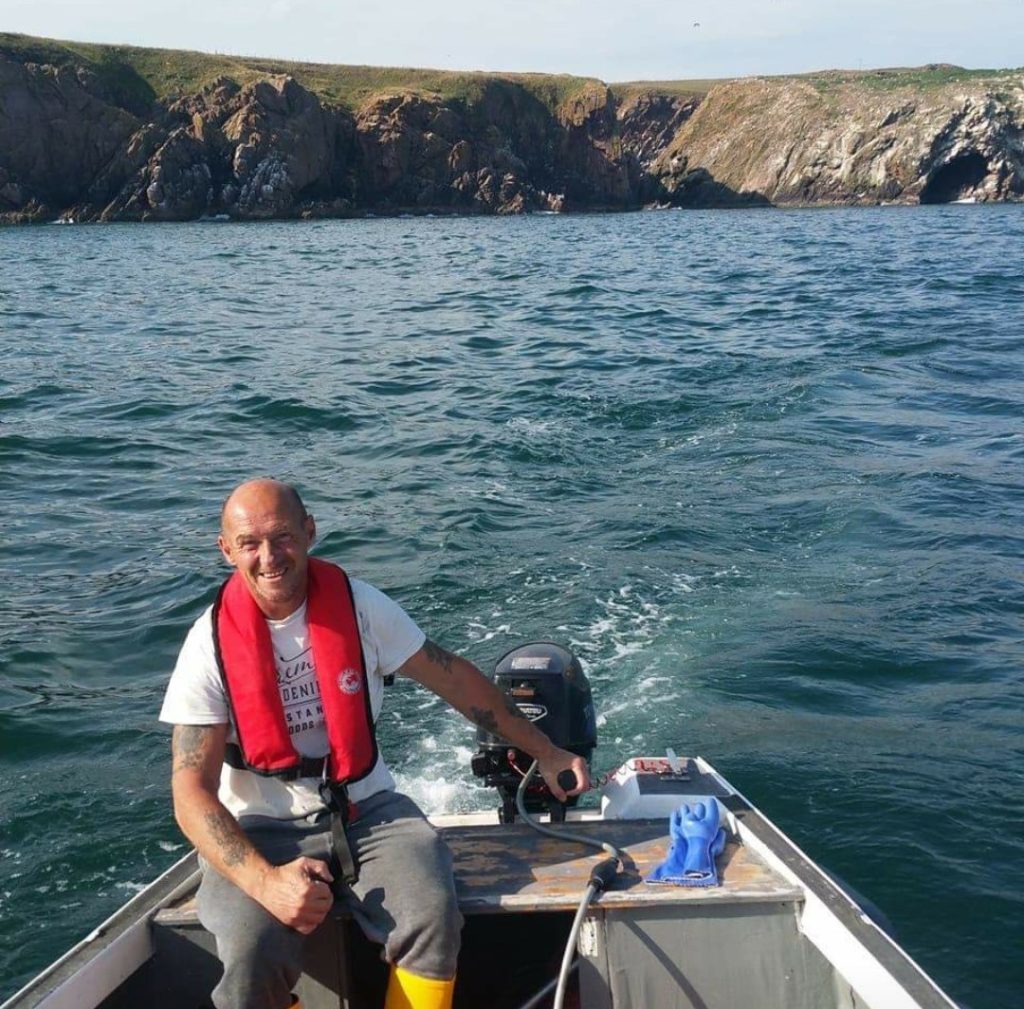
As each year progressed, I felt I was getting better and better, the support from Future Pathways helped me in so many various ways. It helped me trust institutions again which I would never have thought possible due to my past.
Now I have reached a point with my Support Coordinator here today, I feel it is now the time to break away from the service. I want to thank you all for the support through a number of challenges, from my physical health decline to help accessing counselling and other supports for my mental wellbeing.
I can’t believe how much I have moved on from being an angry person to the polar opposite. I now feel like each day I am becoming more and more positive. My Spina Bifida could very well be the result of the physical beatings I received in my youth – but again Future Pathways got me in touch with a clinic in Edinburgh which helped with the diagnosis of this. As a result, this allowed for me to prepare and begin to manage my life accordingly.
I mean this with complete sincerity, I don’t think I would have been here now if it was not for Future Pathways. Now it is my time to move on and let someone else get the support which I have been so thankful for.
All the best,
Sandy Sutherland
Roberto shares his photographs with us. Here are his outdoor trips to great locations.
Future Pathways supported Roberto in his goal to have more time out of his busy life. He had thought about his needs and knew that he had a passion for time outdoors. He was keen to make sure he could still go biking and camping in the winter months. This freedom would help his mental health.
But, he knew he did not have the right equipment. So, Future Pathways supported Roberto to get a new tent. This means he can now take time out anytime during the year, even if it is cold. This has helped to boost Roberto’s mental health.
Roberto completes his trips with a good friend. This gives him time to talk with someone who understands him and it allows their friendship to grow. They especially like visiting Orrin Dam and Lochan Fada.
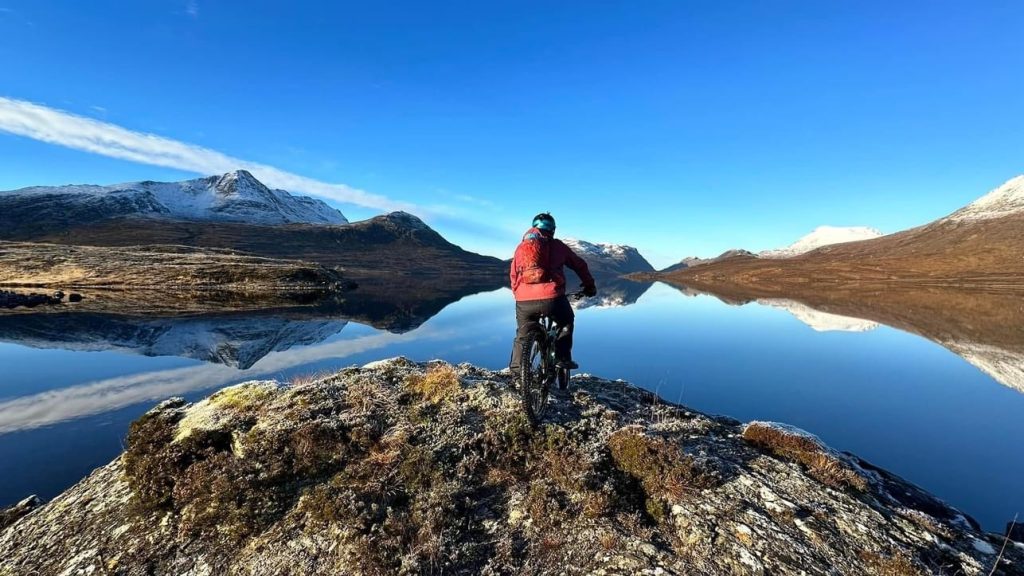
Above: Lochin Fada
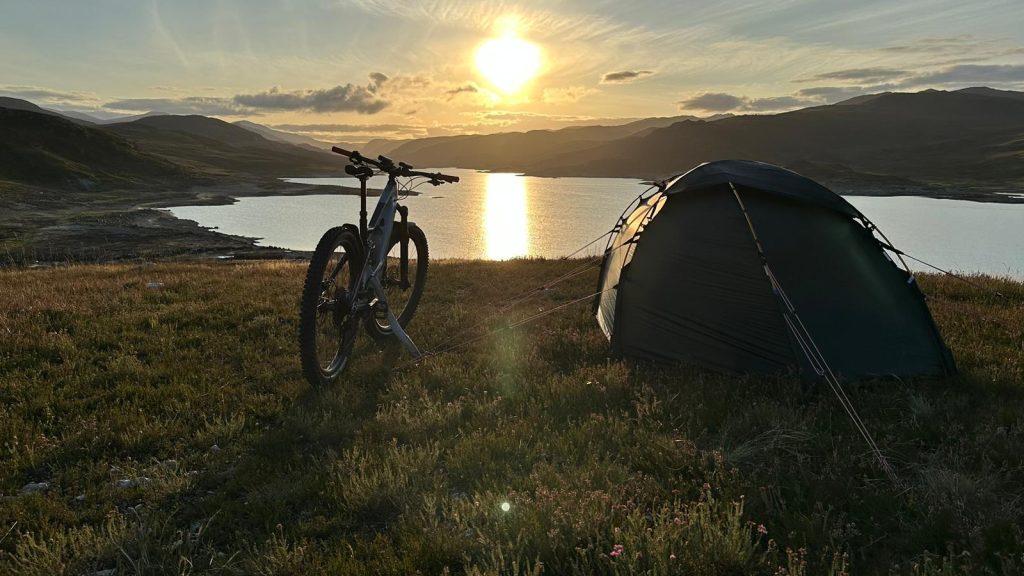
Above: Orrin Dam
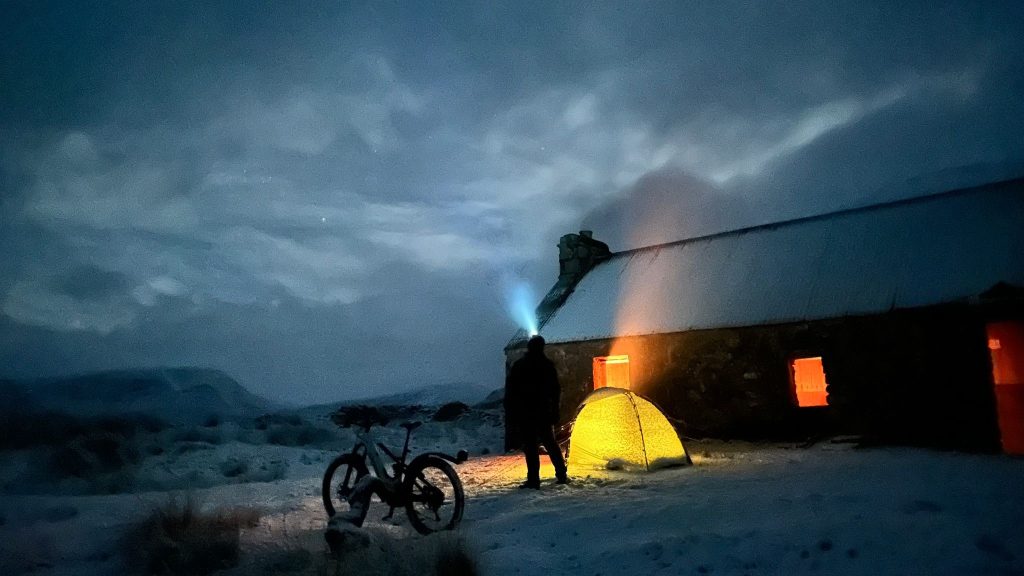
Above: Loch Vaich
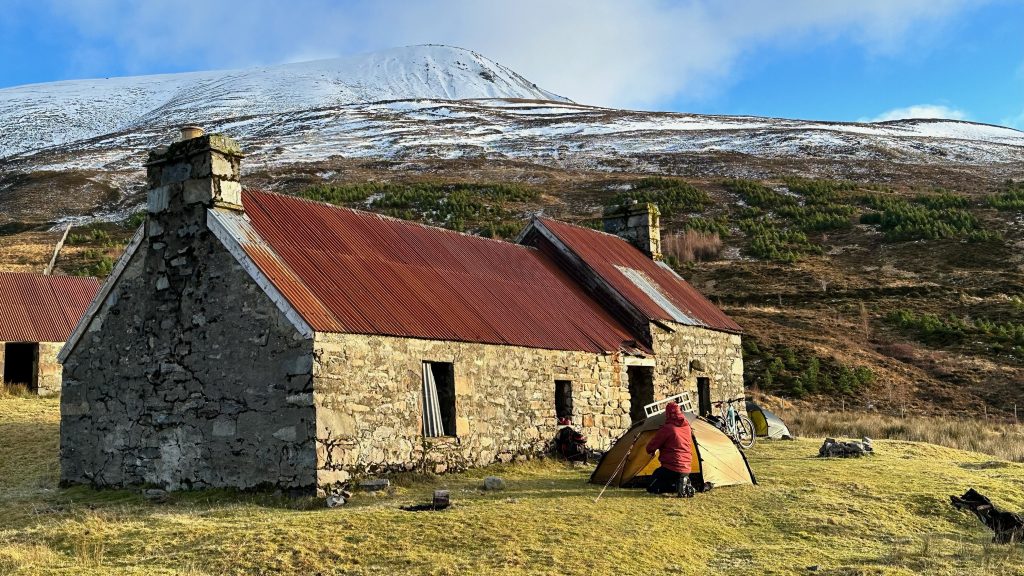
Above: Loch Vaich
Trevor, one of the people we support, would like to share his book with you. It is called ‘Knocking on the Wall’.
Future Pathways supported Trevor to write his book in 2019. In the book, Trevor describes the different times of his life. He writes about the time with his family and also his life after leaving care. The book includes his time as a child in care homes.
Trevor wanted to share his own record of his time in care. And he wanted to explain the impact it had on his life. Trevor talks in his book about his experiences, thoughts and feelings.

It was important for Trevor to write his book. It gave him the chance to get his thoughts down on paper. He also wanted to make sure other people knew his story and he thought it might help them too.
The book includes some of Trevor’s poems. We have included two of them below.
If you would like a copy of Trevor’s book for free, he is happy to share it over email. You can ask for a copy by emailing Trevor at t.swistchew65@gmail.com or by emailing Future Pathways at engagement@future-pathways.co.uk.
Please note that the book does mention some instances of abuse.
LISTEN
Listen –
When it is dark
The sun is shining
When it is light
The sun is shining –
Always.
FREEDOM?
It is not bars a prison makes
It is what is in your head.
For each constructs within the mind
Their walls and locks and chains.
If you can look just for a while
At the views that you believe
You will start to see it is yourself
Whom you yourself deceive.
Freedom in the true sense
Is the end of all self-illusion.
Walk in love – harm no one.
We have been working with Angus. He has a very interesting hobby. He takes photos using a drone. Then he changes the images so that they look like paintings. Here are four examples of Angus’s work, and a few words from him about how it is done.
“It all started because I wanted other people to come and film the cricket field near where I live in Canada. I found myself saying ‘somebody should’. Every time I find myself saying ‘somebody should’, then usually that is a signal to say, ‘you’ll have to do it yourself’. And then when lockdown happened, I thought, well, here is an opportunity to get a drone and learn to fly it. Future Pathways helped me to get some training and certification.
At first, I thought that if I could combine beautiful landscapes with classical music, it would make some spectacular videos. Because it is a very different perspective when you are 100ft up in the air. And then I started to create some still images by taking parts out of the drone videos.
Then, because I was interested in old travel posters, I learned how to remaster images and how to blow them up large. And then from that, I figured out how to transform pictures digitally.
So, by combining all these things, I managed to create a type of art which I was not originally able to do.
I love taking the drone on holiday with me too, particularly to France. Every three metres, there’s something extraordinary to film!”

Above: Notre Dame de Camarès in the Sud Aveyron, France
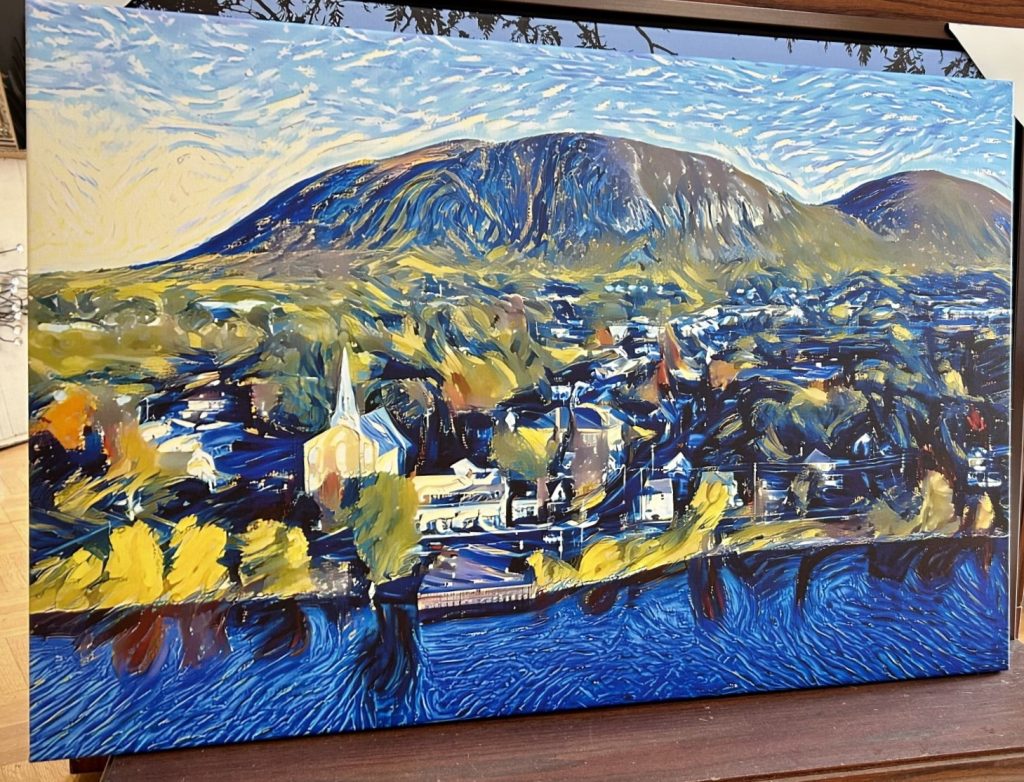
Above: Mont-Saint-Hilaire and the river Richelieu, Québec

Above: Camarès, Le Balcon du Monde, France.

Above: Le Rougier de Camarès, France.
Angus has taken his love of art and vintage posters and created an online shop, shipping his prints all round the world. If you would like to have a look, the website is www.iwantitonmywall.com
At Future Pathways, we take a trauma-informed approach in our work with people. We know from feedback that people value this approach.
People tell us it is important that they:
- feel safe
- can trust a service or provider
- have choices about what support looks like
- can work alongside a service
- can influence their own support
So, we encourage services we work with to have a trauma-informed approach too.
Below, we give a short introduction to trauma and give a few pointers about things you can keep in mind when working with someone affected by trauma.
If you would like to find out more, download our short guide to Trauma Informed Practice.
What is trauma?
Trauma is when a person experiences something as physically or emotionally harmful or life threatening. Trauma can come from an event, a series of events or an ongoing situation. Not everyone will be affected in the same way.
How might trauma affect people?
Trauma can have a lasting effect on people’s mental, physical and emotional wellbeing and can leave people with a sense that they are not safe in some situations or around some people.
Trauma can affect people in different ways at different times. It can also affect someone a long time after an incident has happened.
Trauma can cause people to feel distressed or fearful. Some people may find it harder to trust people or may struggle to manage emotions. For others, trauma can mean a person might find it harder to look after themselves or they may also live with disabilities or health conditions. Everyone experiences trauma differently.
Things to keep in mind:
- It can be difficult or stressful to have a stranger in the home. The person you visit might choose to have a friend, relative or support worker there on the day to help them manage that stress. It is important that people know they are safe. You may know that you don’t pose a threat or risk to someone else but that person will not know this and may choose to keep a distance from you, maybe even asking the friend, relative or support worker to talk to you for them.
- Some projects might require a group of people to come into the person’s home. The person you visit might prefer to know how many people they can expect and who they are. Where possible, keeping the number of people in the group as low as possible can help the person feel safe in their home. It is helpful to be clear about who will be there and when they will be there.
- If you arrange to meet someone on a certain day or time, you should try to keep the appointment. This also means not arriving late or early. It can be difficult for people to let a new person into their personal space, so being consistent is important. If you can’t make it, give the person as much notice as possible. If you’re unable to give advance notice, please do make a courtesy call on the day you were due to meet (as limited or no communication could cause considerable distress).
- It is important to respect people’s privacy. This means not talking about the details of work you have completed or are completing for Future Pathways clients to anyone who is not involved in the work. Keeping this information confidential builds trust with people.
- It is important that people feel safe enough to make choices that are right for them. Make sure that when the person makes decisions, these are respected.
- Allowing additional time for someone to make a decision can be helpful as decision making can be difficult for some people.
- Boundaries and predictability are important for everyone but even more so for people who have experienced trauma. Please do not discuss your past experiences with the person. It is also important that the relationship is kept professional and that you don’t attempt to make contact with the person other than about issues related to the job.
Want to find out more? Download our short guide to Trauma Informed Practice here.
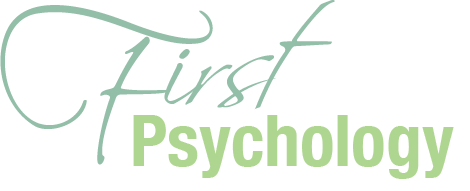
Professor Ewan Gillon is Clinical Director of First Psychology. Formed in 2009, First Psychology now offers many different psychology and counselling services, for a wide range of clients. It operates from 13 consulting venues across Scotland and northern England, with nearly 50 rooms and 150 practitioners.
How did First Psychology begin?
It evolved from my own counselling and therapy practice, which I started around 2001. The ethos behind it was very much to offer a service that was very client-centred, and able to understand the needs of people in different situations in their lives. I was very keen for it to be very transparent, to provide lots of information, and to not be too diagnostic and or expert-led.
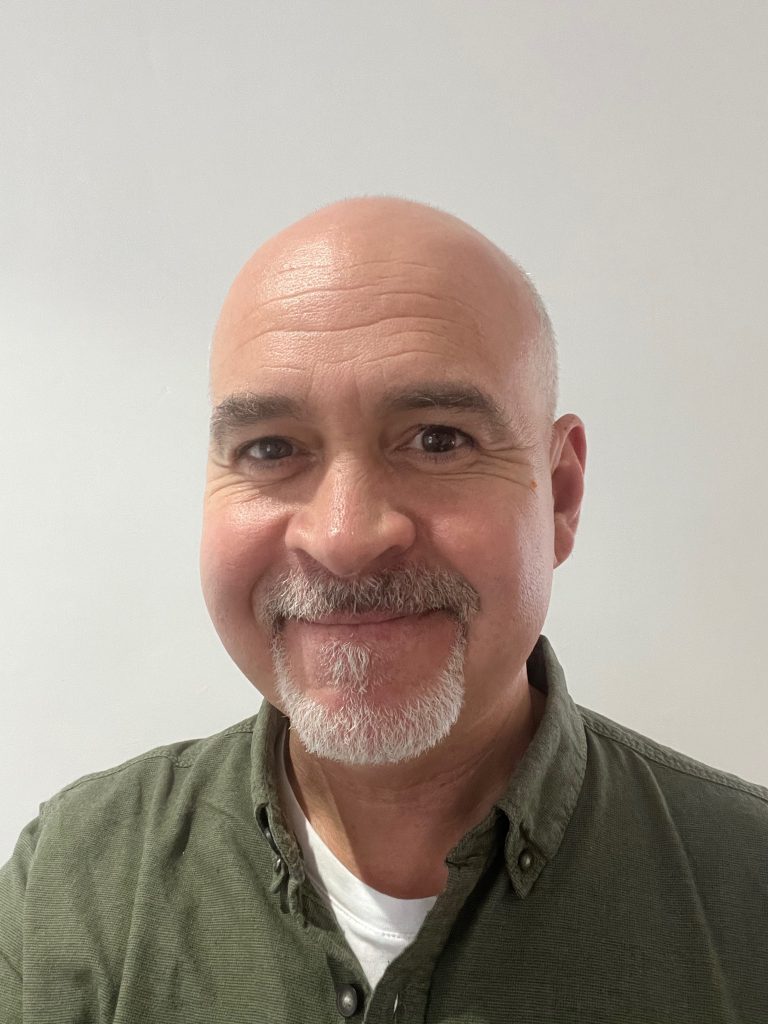
“I wanted to allow each client to find what they need, so that I could offer them different types of therapies and different approaches.”
Initially I worked a lot with men – trying to encourage men to consider therapy and to engage more with their mental health. That grew and evolved to eventually become First Psychology, with the same kind of ethos, philosophy and approach. It was initially based in Edinburgh; since then, we’ve expanded throughout Scotland, and are now moving into northern England.
We still very much focus on working with clients and trying to find the best things for clients. Our philosophy is what we call ‘pluralistic’: that means we’ve got different types of practitioners in our organisation. We’re very much a therapy organisation – people from counselling and psychotherapy backgrounds, people from cognitive behavioural therapy and other specialist types of therapy, and also some psychologists. And what we try and do is find the right clinician for every client. We’ve got a services team who help our clients to find what they need.
We’re a fairly broad group of people now: we have around 150 clinicians working across our organisation. We try to take advantage of that by having lots of training in–house. We’ve got a lot of professional and clinical leadership in–house, in areas such as children and families, couples, and trauma.
How do you work out what type of therapy is going to be right for each person?
We start by speaking to the person themselves, or to someone who knows them well. People want different things. Some people want to talk about their experiences, and just have a place to feel heard, and to be valued and validated. Others are looking for techniques and strategies to help them manage particular difficult experiences they might have. So, we talk to the person themselves, and they are the decision–maker.
Then we can say, ‘These are the people we have available who do the kind of things that you are looking for’, and we might suggest that the person meets with a particular clinician. In that initial session the clinician can figure out whether what they do and how they work is going to be helpful for the client.
“The client gets a chance to decide whether they like the person, and whether they feel that they can talk to them and they’re going to meet their needs.”
It’s very much a discussion about the next steps, rather than starting anything. You might establish what that particular clinician can offer, and agree a plan or a process of therapy.
If it doesn’t work in that first session – for example, if the clinician feels that a different approach might be better, or that the client needs something other than therapy – then we help the client find that other thing themselves. We might advise the client, ‘This is where I think you should go’, or we might refer them to someone else at First Psychology.
Is that approach – of having lots of different types of services available – quite unusual?
Yes, it is. What you tend to find is that a lot of services are either clinician–led or theory-led. Either the clinician has got a particular interest, or there’s a particular philosophy that the people who run the service believe in, and that’s basically what you get. Whereas, we think that clients themselves should be making decisions about what they need, in discussion with clinicians.
It’s not the client simply saying ‘I want that’ and getting it. If someone wants something that we think is not actually going to be helpful to that person, or it’s not something that we feel can offer, we’d have a conversation.
So certainly we’re quite unusual. I think that’s why we’ve grown over the years: we’ve innovated and changed in response to demands from people.
You said that earlier in your career you were focused on getting men into therapy. Do you think that there’s still some stigma about that, or find that a lot of people – not just men – are resistant to the idea?
Yes, I think that’s absolutely the case. And I think that there are different types of experiences people have, and different reasons why they might feel apprehensive or unsure about whether therapy is something they want to pursue. Obviously, people may have had bad experiences with authority in the past, and they might in some ways imagine that therapy involves authority.
“There may be some stigma around speaking to people about your problems: people feeling that they may be judged, or that other people might see them as not being able to cope, or something like that.”
And, to be honest, there are just natural anxieties about entering into something like therapy, which may feel very unknown and very uncertain because it’s not something you do every day. So, it’s naturally an activity that is going to be hard for people to start. It’s not an easy thing to do.
How do you try to address these sorts of obstacles?
Over the years we’ve tried different ways of being as open as we can to different types of experiences that people have had, and really thinking through what it is like for someone coming for therapy. In our service team we have an ‘every contact counts’ philosophy. So, if someone phones up but they don’t book a session, we see that as a good thing, not a bad thing. We want to help. And if someone says, ‘Look, I just want information’, that’s fine. We’re not trying to force anyone to do anything, because we want to help people begin in their own minds to break down the barriers.
Not everyone will come to therapy, not everyone is going to be helped by therapy. I mean, it’s a process that I think generally can be pretty helpful, but there may be other things that are equally helpful to someone in a particular set of circumstances. So, again, it comes back to this philosophy of being very client–centred, and wanting to help people find what they need for themselves.
“It’s about understanding that coming for therapy is difficult.”
So we provide information and support, we answer questions, we’re very open and transparent, we offer sessions at different times in the day in different locations, we offer telephone and remote sessions… all of these things making it as possible as it can be for different people to access the service in the way that works for them.
In many ways your philosophy, values and approach are all similar to those of Future Pathways.
Yes, I think so. I think we share a real emphasis on client–centeredness in our way of working.
Obviously, one difference is that First Psychology is a business. We’re independent: we function and we make our living from doing therapy, which is a good thing because it enables us to do it in the way that we really believe in, rather than being beholden to other organisations and so on. The downside, of course, is that we have to charge, and that’s something that we try our best to manage.
But, I certainly think, having worked with Future Pathways, that there is a lot of overlap in the way that we work. Ultimately, I think we’ve both got the same thing at heart, which is that it matters to us that people are helped and given the support that they themselves feel is helpful to them, rather than imposing something on them.
“For people who have had difficult experiences in their lives, having power and control – and feeling that they are valued and listened to – is of immense importance.”
And that is absolutely how we would see every single client who comes through our door.
We’d like to develop our relationship with Future Pathways, and we can see the opportunity for that. And obviously, as we get to know each other better, we’re really responsive and open to any feedback and support that we get from Future Pathways and the people they support. It’s a relationship that’s growing, and that I hope will continue to grow.
